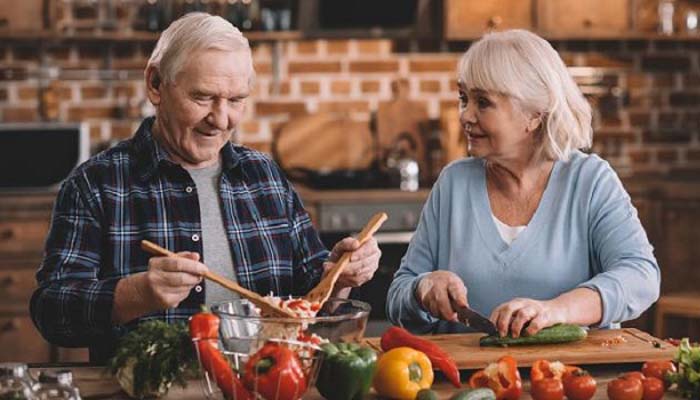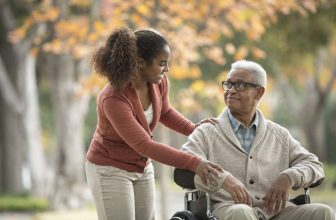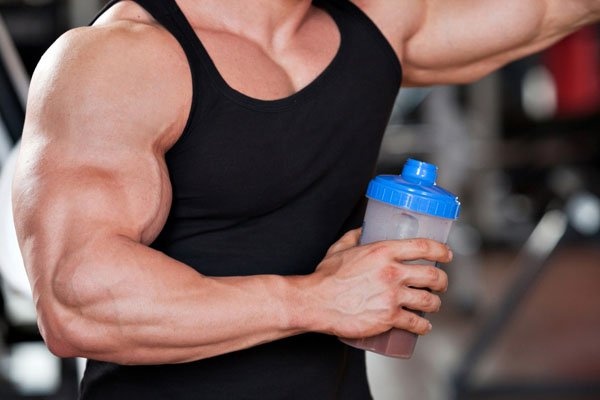
Eating the right foods is important for seniors, as it offers a mix of essential nutrients and vitamins for healthy aging. Vitamins, found in many foods, from vegetables and fruits to meat and energy bars, can either be fat-soluble or water-soluble. Keeping a good balance of vitamins in the diet can contribute to higher energy levels and the ability to combat certain diseases.
However, it can be challenging to know which vitamins are the best for seniors. There is no one cure-all vitamin. A number of vitamins are essential for seniors to add to their daily regimen to maintain healthy functions, from heart health to cognitive abilities.
The following are some of the best vitamins to include in your aging loved one’s diet.
1. Vitamin A
Vitamin A is mostly found in skin care products, this is the reason it is best for aging skin. It also promotes healthy vision and enhances bone and teeth health. Moreover, vitamin A can contribute to a healthy immune system. It also aids in proper functioning of heart, lungs, kidney, and other organs.
Vitamin A deficiency is not very common, yet it is important to include in the diet. Including premature infants and those with cystic fibrosis, older adults are also at a risk of having low vitamin A levels. In fact, vitamin A deficiency can lead to xerophthalmia, an eye condition, which can cause blindness.
Sources: Carrots, sweet potato, squash, dried fruits, bell peppers, and seafood.
2. Vitamin B12
Vitamin B12 is essential for healthy nerve function and making of new cells in the body. It can also lower the risk of cardiovascular disease as it helps in breaking down amino and fatty acids.
Deficiency of vitamin B12 can lead seniors to experience anemia, chronic fatigue, loss of appetite and constipation. A vitamin B12 deficient person can also experience neurological issues, like depression and dementia.
Sources: Meats and dairy, including fish, poultry, liver, cheese, and yogurt; whole grains, legumes, dark leafy greens, seeds, and nuts.
3. Vitamin C
Vitamin C helps in preventing infection in the body and keeping the immune system healthy. It allows the body to absorb iron, which is one of the most critical components of healthy body functions, especially in transporting oxygen through the blood cells.
Vitamin C is basically an antioxidant that protects the cells from free radical in the body. It is also necessary for the formation of collagen, which allows the injuries and wounds to heal properly. Seniors who are vitamin C deficient may develop scurvy, which can lead to depression and anemia. However, it happens rarely.
Sources: Citrus fruits, including oranges, lime, and lemon; tomatoes, spinach, broccoli, red pepper, guava, kiwi, black currant, papaya, and strawberries.
4. Vitamin D
Vitamin D is important for the absorption of calcium in the bones, which promotes bone health. It also aids in reducing inflammation and strengthens the immune system.
Seniors can get vitamin D naturally through sunlight. However, many seniors stay indoors during the daytime, which leads to a lack of adequate vitamin D levels. Deficiency of vitamin D can cause bone weakness and even osteoporosis.
Sources: Dairy is an ideal source of vitamin D, which is actually not present in a lot of foods. Seniors can easily get a daily amount of vitamin D through milk, fatty fish, and cheese.
5. Vitamin E
Vitamin E is an antioxidant that keeps cells protected from damage and also helps in the combat against Alzheimer’s disease and cancer. It is also essential for a healthy immune system and preventing infections by fighting off bacteria.
Vitamin-E is needed to keep organs working properly and promote overall health, including a healthy blood flow to prevent it from clotting. Vitamin E deficiency can lead to muscle and nerve damage, along with vision and other health issues.
Sources: Avocados, vegetable oil, nuts, whole grains, egg yolks, mustard greens, kale, turnip greens, swiss chard, spinach, and seeds.
6. Vitamin K
Vitamin K is needed for bone health and blood clotting. It is also assumed to reduce the risk of osteoporosis and coronary heart disease, but no evident research has been found.
Seniors who take blood thinning medication for heath health, they should consider getting the right amount of vitamin K through their daily diet. Deficiency can lead to bruising and bleeding issues.
Sources: Leafy greens like kale, spinach, collard, cabbage, mustard greens, broccoli, and turnip greens.
7. Biotin
Biotin is a member of vitamin Bs family, also known as vitamin B7. It is important for overall health as it promotes the absorption of carbohydrates, protein, and fat from food. It also helps in growing hair and strengthening the bones.
The presence of biotin in the body allows the organs to process naturally and breaks down the food. Though biotin deficiency is rare, it is common in athletes who eat raw egg whites for a long time. Deficiency can lead seniors to nausea, depression, scaly dermatitis, and loss of hair.
Sources: Biotin is naturally produced in the intestinal tract, but it can also be consumed through soybeans, whole grains, egg yolks, organ meats, dairy, salmon, sweet potatoes, and mushrooms.
8. Folic Acid
Folic acid is necessary for the body to produce and maintain new cells. In fact, the formation of red blood cells is dependent upon sufficient levels of folic acid.
Folic acid prevents body tissues from depriving of vital oxygen. Deficiency of folic acid can lead to anemia, weakness, persistence fatigue, lethargy, shortness of breath, pale skin, and irritability.
Sources: Folic acid is added to most refined grains and protein bars, but it naturally occurs in seeds, legumes, liver, spinach, peas, romaine, and okra.
These are some of the most important vitamins seniors should include in their daily diet, but consulting a physician before taking any vitamins or supplements is necessary as having too much of a nutrient can have an adverse effect on a senior’s health. A doctor can be able to determine if your senior loved one has any vitamin deficiencies to establish a vitamin regiment that can meet your loved one’s specific needs.
William Johnson has been associated with senior home care industry. He is committed to changing the way home care businesses operate. At Home Care Assistance Winnipeg, MB William Johnson is responsible for managing business operations and ensuring seniors and their families receive the high-quality services they deserve.




